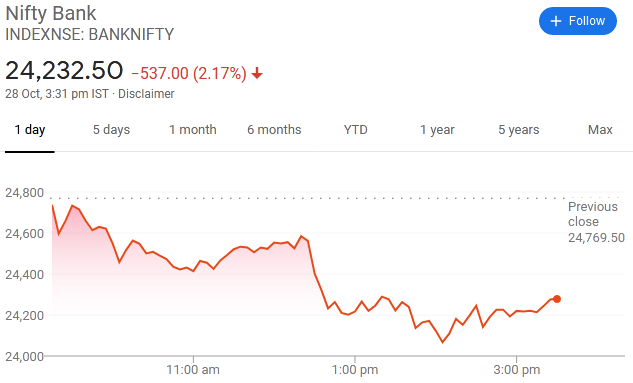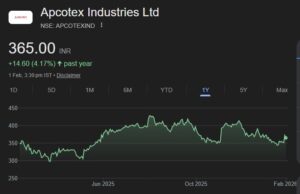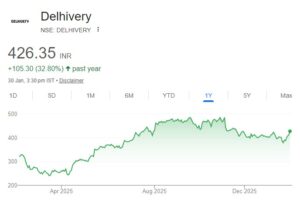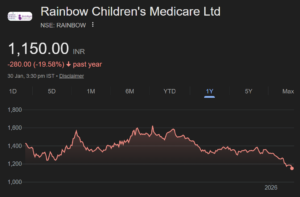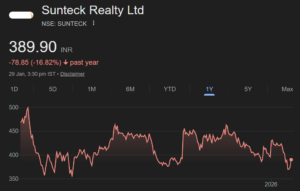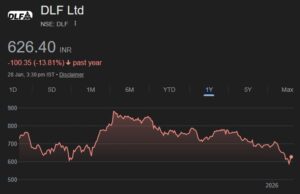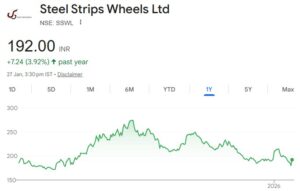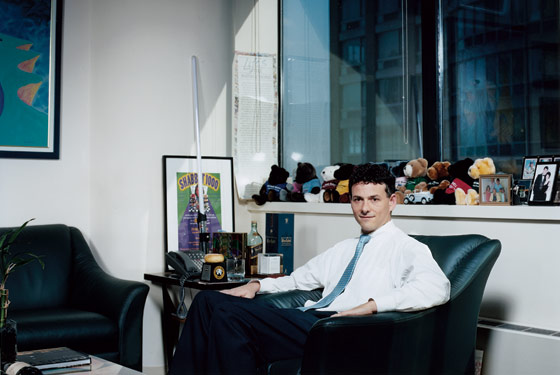
Markets crashed today after Bears attack
“Hum Ji ke kya karenge …. Jab Dil Hi Toot Gaya,” Mukeshbhai sobbed, his clothes in disarray, tears brimming in his eyes.
Jigneshbai, me and the other punters on Dalal Street were in an equally sorry state.
We had been ambushed and overpowered by the Bears.
The Bears were emboldened by the alleged rise in Covid cases and the lockdown announced by several European Countries and had launched an audacious attack on the unsuspecting Bulls.
Good Morning from Germany where Chancellor Merkel is considering “light lockdown,” in face of rising Covid-19 cases. All restaurants, bars, theaters, operas, fitness studios, cinemas to close. Schools & shops should be able to remain open. New measures from 4 Nov until end of Nov pic.twitter.com/H3K9ltzStj
— Holger Zschaepitz (@Schuldensuehner) October 28, 2020
However, we did put up a strong fight and managed to salvage the Nifty 11700 level.
“Bulls win above 11780, bears below 11700. Battle ground in between,” an expert commented, implying that it is still anybody’s game.
Bulls win above 11780, bears below 11700. Battle ground in between ? https://t.co/VYIHXsv92c
— Pradeep Pandya (@pandyapradeep) October 28, 2020
By the EOD, the Bank Nifty had crashed 537 points while the Nifty had lost 160 points.
Teenager claims to have quadrupled money in 8 months
According to conventional wisdom, markets can be said to be topping up when exuberance is at the peak and average Rajus start offering stock recommendations.
The situation is worse when self-opinionated and insufferable teenagers start raking in money and begin offering advice.
“There are many anecdotes of toppy behavior. We will share one: We recently received a job application with the email subject, “I am young, but good at investments” from a 13-year-old who purports to have quadrupled his money since February,” David Einhorn said with a chuckle in his latest newsletter.
“We are now in the midst of an enormous tech bubble,” the visionary Billionaire stated.
He opined that all the signs of a bubble are there, including:
(i) an IPO mania;
(ii) extraordinary valuations and new metrics for valuation;
(iii) a huge market concentration in a single sector and a few stocks;
(iv) a second tier of stocks that most people haven’t heard of at S&P 500-type market capitalizations;
(v) the more fanciful and distant the narrative, it seems the better the stock performs;
(vi) outperformance of companies suspected of fraud based on the consensus belief that there is no enforcement risk, without which crime pays;
(vii) outsized reaction to economically irrelevant stock splits;
(viii) increased participation of retail investors, who appear focused on the best-performing names;
(ix) incredible trading volumes in speculative instruments like weekly call options and worthless common stock;6 and
(x) a parabolic ascent toward a top.
He also claimed that the conception of P/E valuation is irrelevant.
“What matters in a bubble is market psychology, not valuation. Valuation is irrelevant; that’s what makes it a bubble,” he said.
“Bubbles tend to topple under their own weight. Everybody is in. The last short has covered. The last buyer has bought (or bought massive amounts of weekly calls). The decline starts and the psychology shifts from greed to complacency to worry to panic,” he added.
He also stated that according to his working hypothesis, the top was reached on 2nd September 2020 and that the bubble has already popped.
“If so, investor sentiment is in the process of shifting from greed to complacency,” he warned.
Greenlight Capital's David Einhorn just called the top in stocks, and gave 10 reasons why tech is in a bubble https://t.co/yfCOQUXfPF
— Business Insider (@businessinsider) October 27, 2020
But David Einhorn has been calling a top since 2016 and has underperformed severely
David Einhorn’s credibility is somewhat at stake because he is a Perma-Bear and has been calling a top since 2016.
He fairly admitted to the criticism.
“We prematurely identified what we thought was a bubble in early 2016. Part of our thinking at the time was that the height of the 1999-2000 bubble was a once-in-a-career experience and that investors would not repeat that level of insanity. Clearly, we were mistaken,” he said with utmost humility.
However, his being a Perma-Bear has cost the investors of his Hedge Fund dearly.
The Greenlight Capital funds underperformed the S&P 500 index by returning a meagre 5.9% in the third quarter of 2020 as compared to 8.9% for the Index.
“We know it will take a strong stomach to overlook our recent performance,” he candidly admitted with a weak smile on his face.
“Einhorn’s value style of investing has been out of sync with markets for years. He’s still trying to climb out of a hole that started with a 20% loss in 2015 and deepened with his worst decline ever three years later, when the main fund plunged 34%. With this year’s drop, he’d need to return about 93% to get back to where he was at the end of 2014,” Bloomberg stated.
Naturally, investors are bolting.
“The firm managed $2.6 billion as of Jan. 1, down from $12 billion at its peak“, the press report pointed out.
David Einhorn also bet against Tesla and lost miserably
For some reason, David Einhorn, Jim Chanos and other famed short-sellers had convinced themselves that Tesla is/ was a fraud which would collapse like a house of cards.
In 2018, Einhorn (in)famously compared Tesla with the disgraced Lehman Brothers and warned that “Deception would catch up with it“.
Inspired by Einhorn’s comments, all and sundry short-sold the stock.
The shorts totalled an eye-popping $20 Billion and the stock achieved the dubious distinction of becoming “America’s most shorted stock“.
In a bizarre and paradoxical twist of fate, the mass of short sellers triggered a buying mania which sent Tesla surging like a supersonic rocket.
“While Tesla stock soared 340% in the past year, its short interest fell three times. That means short sellers were forced to buy tens of millions of Tesla shares during this past year,” an expert pointed out.
Tesla is up 170% since last November when David Einhorn questioned whether its accounts receivable "even exist." pic.twitter.com/Mwaj7TCH2y
— Charlie Bilello (@charliebilello) February 4, 2020
Elon Musk taunted Einhorn by sending him a pair of “shorts” which the latter sportingly accepted.
Tragic. Will send Einhorn a box of short shorts to comfort him through this difficult time.
— Elon Musk (@elonmusk) August 1, 2018
I want to thank @elonmusk for the shorts. He is a man of his word! They did come with some manufacturing defects. #tesla pic.twitter.com/qsYfO8cbkp
— David Einhorn (@davidein) August 10, 2018
Anyway, the bottomline is that while we have to be wary of the alleged “Bubble” and not carried get carried away by the Bull market, we will also have to take David Einhorn’s advice with a pinch of salt!

